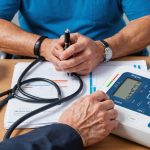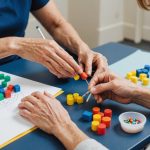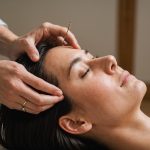Unlocking Recovery: The Impact of Speech Therapy on Stroke Rehabilitation for Seniors
Understanding the Impact of Stroke on Seniors
Stroke is a life-altering event that can significantly affect an individual’s physical, cognitive, and emotional well-being. For seniors, the consequences of a stroke can be particularly challenging, often leading to disabilities that impact daily living, communication, and overall quality of life. However, with the right approach to rehabilitation, many stroke survivors can make significant progress in their recovery.
The Role of Speech Therapy in Stroke Rehabilitation
Speech therapy is a crucial component of stroke rehabilitation, especially for seniors who may experience communication and cognitive impairments. Here’s how speech therapy can make a difference:
Have you seen this : Essential Legal Strategies for UK Seniors to Effectively Manage Their Estates as They Age
Addressing Communication Challenges
After a stroke, many individuals develop aphasia or other communication disorders that can make speaking, reading, and understanding language difficult. Speech therapists work closely with patients to develop strategies to improve these skills.
-
Language Exercises: Speech therapists use various exercises to enhance language skills, such as verbal working memory worksheets, bridging questions, and activities that involve filling in the blanks in texts. These exercises, available in resources like those from HappyNeuron Pro, are designed to be engaging and challenging, helping patients to regain their verbal abilities.
Also to read : Essential Factors for Seniors to Weigh When Deciding Between a Walker and a Cane
-
Cognitive Training: Cognitive training is integral to speech therapy. It includes tasks that improve attention, processing speed, and executive functions. For example, activities like “Seize the Keywords” and “This Story is Full of Blanks!” help in memorizing specific words and working on verbal memory and strategy skills.
Enhancing Cognitive Functions
Cognitive impairments are common after a stroke, and speech therapy can play a significant role in addressing these issues.
-
Memory and Attention: Speech therapists use a variety of cognitive exercises to improve memory and attention. These can include tasks such as planning a party, which combines the excitement of event planning with cognitive skill enhancement.
-
Executive Functions: Activities that focus on executive functions, such as strategy and planning, are also crucial. For instance, virtual reality games like Reh@City can simulate real-world scenarios, helping patients improve their cognitive functions and participation in daily activities.
The Benefits of Speech Therapy for Stroke Survivors
Speech therapy offers numerous benefits for stroke survivors, particularly seniors, by improving various aspects of their health and quality of life.
Improved Communication
-
Enhanced Speech and Language Skills: Speech therapy helps patients regain their ability to communicate effectively. This improvement can significantly boost their confidence and ability to interact with loved ones and engage in social activities.
-
Better Understanding and Expression: Therapists work on both receptive and expressive language skills, enabling patients to understand and express themselves more clearly.
Cognitive Improvement
-
Memory and Attention: Regular cognitive exercises can improve memory and attention, making daily tasks easier to manage.
-
Executive Functions: Enhancing executive functions helps patients in planning, organizing, and executing tasks, which is essential for independent living.
Emotional and Mental Health
-
Reduced Stress and Anxiety: The supportive environment of speech therapy can help reduce stress and anxiety, promoting better mental health.
-
Improved Quality of Life: By improving communication and cognitive skills, speech therapy can significantly enhance the overall quality of life for stroke survivors.
Integrating Speech Therapy with Other Rehabilitation Methods
For optimal recovery, speech therapy is often integrated with other forms of rehabilitation.
Occupational Therapy
Occupational therapy focuses on helping patients regain the skills needed for daily living. When combined with speech therapy, it can be particularly effective.
- Practical Activities: Occupational therapists may incorporate activities like meal preparation, using the bathroom, and other daily tasks into the rehabilitation plan. These activities can be tailored to include cognitive and communication exercises, making the rehabilitation process more holistic.
Physical Therapy
Physical therapy is essential for improving physical mobility and strength after a stroke.
- Coordination and Balance: Physical therapists can recommend exercises and activities that improve hand-eye coordination, balance, and overall physical activity levels. Video games, for example, can be used to enhance motor functions and promote recovery from paralysis.
Using Technology and Innovative Tools in Speech Therapy
Technology has revolutionized the field of speech therapy, offering innovative and engaging tools for rehabilitation.
Video Games
Video games can be a powerful tool in stroke rehabilitation, especially when it comes to cognitive and motor skills.
-
Brain Age and Similar Games: Games like Brain Age, which focus on cognitive skills such as memory and concentration, can be highly beneficial. These games are inspired by neuroscientific research and can be played independently or with friends.
-
Virtual Reality: Virtual reality (VR) games provide a multisensory experience that can help improve both physical and cognitive skills. Games like Beat Saber and Reh@City are examples of how VR can be used to simulate real-world scenarios and enhance recovery.
Practical Tips and Advice for Caregivers and Patients
For caregivers and patients, here are some practical tips to make the most out of speech therapy:
Creating a Supportive Environment
-
Encourage Practice: Encourage patients to practice their communication and cognitive skills regularly. This can be done through daily exercises and activities recommended by the speech therapist.
-
Use Technology: Utilize digital tools and apps that offer speech and cognitive exercises. Resources like HappyNeuron Pro provide a wide range of activities that can be downloaded and printed for convenience.
Integrating Therapy into Daily Life
-
Incorporate Therapy into Daily Routines: Incorporate speech and cognitive exercises into daily routines. For example, planning a meal or organizing a simple event can be a fun and engaging way to practice cognitive skills.
-
Seek Professional Help: Consult with speech, occupational, and physical therapists to create a comprehensive rehabilitation plan. These professionals can provide personalized recommendations and support.
Success Stories and Testimonials
Real-life stories and testimonials from stroke survivors and their caregivers highlight the effectiveness of speech therapy in rehabilitation.
-
Personal Experience: One caregiver noted, “My mom began experiencing memory and cognitive issues after her stroke. The speech therapist recommended an activity book, and within the first week, she was able to do exercises she thought were impossible. It has given us hope and gratitude to see her regain her hand-eye coordination and cognitive abilities”.
-
Professional Insights: Speech therapists often see significant improvements in their patients. As one therapist mentioned, “Speech therapy is not just about regaining language skills; it’s about enhancing the overall quality of life. By making the exercises engaging and challenging, we can see remarkable progress in our patients”.
Speech therapy is a vital component of stroke rehabilitation for seniors, offering a range of benefits that extend beyond just communication skills. By integrating speech therapy with other forms of rehabilitation, using innovative tools like video games and virtual reality, and creating a supportive environment, patients can make significant strides in their recovery.
Key Takeaways
- Comprehensive Rehabilitation: Speech therapy should be part of a comprehensive rehabilitation plan that includes occupational and physical therapy.
- Technology Integration: Utilize digital tools and apps to make therapy more engaging and accessible.
- Supportive Environment: Encourage regular practice and create a supportive environment that fosters recovery.
- Professional Guidance: Seek advice from speech, occupational, and physical therapists to tailor the rehabilitation plan to individual needs.
By understanding the impact of speech therapy and incorporating these strategies, stroke survivors and their caregivers can navigate the recovery process with greater ease and hope for a better quality of life.
Table: Comparing Different Rehabilitation Tools
| Rehabilitation Tool | Benefits | Examples | Suitability |
|---|---|---|---|
| Speech Therapy Worksheets | Improves language, memory, attention, and cognitive functions | HappyNeuron Pro worksheets | Seniors with aphasia or cognitive impairments |
| Video Games | Enhances cognitive, motor, and emotional skills | Brain Age, Virtual Reality games like Beat Saber and Reh@City | Seniors with physical and cognitive impairments |
| Occupational Therapy Activities | Helps with daily living skills, coordination, and balance | Meal preparation, using the bathroom | Seniors needing assistance with daily tasks |
| Physical Therapy Exercises | Improves physical mobility, strength, and balance | Hand-eye coordination exercises, balance training | Seniors with physical impairments |
| Activity Books | Provides cognitive and motor exercises | Stroke Recovery Activity Book | Seniors and caregivers looking for home-based activities |
Detailed Bullet Point List: Tips for Caregivers
- Encourage Regular Practice: Ensure the patient practices their communication and cognitive skills daily.
- Use Technology: Utilize digital tools and apps that offer speech and cognitive exercises.
- Create a Supportive Environment: Make the practice sessions engaging and supportive.
- Incorporate Therapy into Daily Routines: Integrate therapy into daily activities like meal planning or organizing events.
- Seek Professional Help: Consult with speech, occupational, and physical therapists to create a comprehensive rehabilitation plan.
- Monitor Progress: Regularly monitor the patient’s progress and adjust the therapy plan as needed.
- Provide Emotional Support: Offer emotional support and encouragement to help the patient stay motivated.
- Educate Yourself: Learn about the different types of exercises and activities that can help in the recovery process.
- Involve Loved Ones: Involve family members and loved ones in the therapy process to make it more engaging and supportive.
By following these tips and integrating speech therapy into a comprehensive rehabilitation plan, stroke survivors can unlock their full potential for recovery and improve their overall quality of life.











